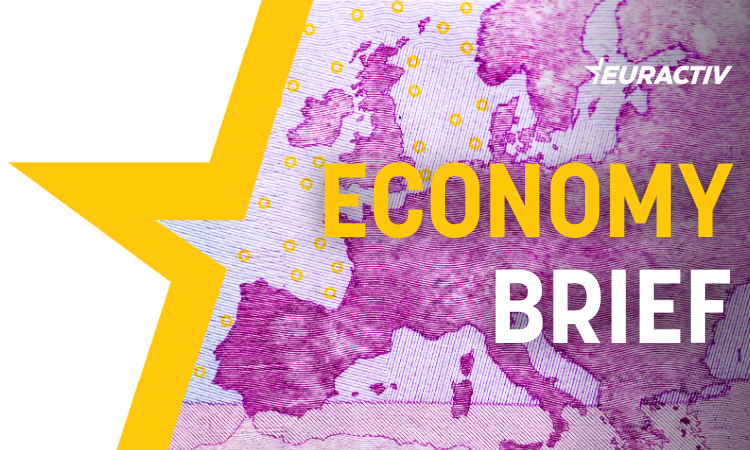
The Corporate Sustainability Due Diligence Directive (CSDDD) has been taken off the agenda of today’s meeting of EU ambassadors, as it was not expected to reach a majority among EU countries. So far, no new date for the vote has been set.
The law, which aims to make companies liable for breaches of human rights in their value chain, has been contested for some time as critics fear it adds to companies’ bureaucratic burden.
After a last-minute intervention by the German liberal party FDP (Renew), the German government would have had to abstain, as internal coalition rules foresee in the case that coalition parties cannot agree on a joint position – despite both socialist Labour Minister Hubertus Heil and Chancellor Olaf Scholz having liked to see the law greenlighted.
In a letter to business associations, FDP chief Christian Lindner and Justice Minister Marco Buschmann wrote that the law “would place an additional burden on the companies concerned,” vis-a-vis with a similar German law, known as the supply chain act.
If the vote had been taken today, Italy would have abstained as well, according to a diplomatic source. In that case, the law would therefore likely have fallen short of the necessary “qualified” majority of 15 EU countries representing at least 65% of the population.
The decision to take it off the agenda was based on the “probability of reaching a qualified majority”, another diplomat said.
The next steps are unclear, as the upcoming European election means there will be a hard break to any legislative work very soon, as the last meeting of the European Parliament will be in April.
“The FDP has not only persuaded DE to abstain, but has also pressurised other countries,” Anna Cavazzini (Greens/EFA), head of the European Parliament’s Single Market Committee, posted on X, adding “it’s unbelievable how a single party is keeping Europe in suspense”.
“The postponement must now be used to convince wobbly candidate states,” she added.
The Parliament’s chief negotiator, Dutch lawmaker Lara Wolters (S&D), declined to comment.
A spokesperson of liberal German justice minister Marco Buschmann (FDP) said on Wednesday he did not want to speculate on potential next steps, or whether the concerns by the minister could be addressed through renegotiations.
“Now that negotiations have been going on for so long, it is certainly not appropriate to consider new hypothetical scenarios,” the spokesperson said.
Similar statements were made by the Labour Ministry on Friday, before the rescheduling was known.
Chart of the Week
As EU trade Commissioner Valdis Dombrovskis met with Canadian counterparty Mary Ng today, let’s have a look at trade between the EU and Canada.
The EU-Canada Comprehensive Economic and Trade Agreement (CETA) is a “true success story”, Dombrovskis told journalists on Friday, highlighting the increase in trade since its provisional entry into force in 2017.
EU goods exports to Canada indeed surged by 15% after CETA provisionally entered into force in 2017.
The COVID-19 pandemic subsequently saw exports decline to pre-CETA levels in 2020, before rebounding to a record high of $49.1 billion in 2022.
Graph: Esther Snippe.
Economic Policy Roundup
Major European trade union organisations issue an “urgent” appeal to EU policymakers to condition industrial companies’ receipt of public funds on the protection of workers’ rights. In a letter addressed to the EU’s Competitiveness Council – which held an informal meeting in Genk on Thursday and Friday (8 and 9 February) – the European Trade Union Confederation and industriALL Europe called on ministers to ensure that government-funded businesses respect employees’ bargaining rights and avoid the further “deterioration” of Europeans’ working conditions. “When we give vast amounts of taxpayers’ money to private industry, we should be ensuring they are creating quality jobs that make this collective investment worthwhile,” the letter reads. Read more.
Platform work rulebook hangs by thread ahead of member states’ final nod. Negotiators from the European Commission, Council and Parliament struck a deal on the Platform Work Directive – for the second time – on Thursday (8 February), with all eyes now on member states, who have been asked to rubber-stamp it next week Friday (16 February). Read more.
EU closes deal on scaled-back clean tech ‘sovereignty fund’. Legislators from the Council of EU member states and the European Parliament reached an agreement on Wednesday (7 February) on a scaled-back version of what was initially pitched as an EU sovereignty fund to support green technologies. Read more.
The European Parliament has formally approved legislation forcing banks and other payment service providers to offer EU citizens and businesses the option of performing virtually instantaneous credit transfers. The law comes as part of wider efforts to deepen the bloc’s Capital Markets Union (CMU) and strengthen its strategic autonomy. “The idea is very simple, allowing all of us to send and receive money in less than 10 seconds,” said Mairead McGuinness, the EU Commissioner in charge of financial services. Read more.
EU agrees law to boost green industry at home. The European Parliament and national governments have agreed to boost domestic production of green technologies, such as solar modules and wind turbines, expanding the list to include nuclear power but shying away from excluding Chinese manufacturers for most public subsidies. Read more.
The European Parliament and Council agree a provisional deal on “historic” legislation aimed at ensuring greater transparency and public oversight of environmental, social, and governance (ESG) rating agencies. The agreement follows a Commission proposal issued in June last year to improve the integrity of ESG rating providers, which have been widely criticised for their opacity, for encouraging “woke capitalism”, and for allowing companies to misrepresent their environmental credentials (“greenwashing”). The Parliament’s rapporteur Aurore Lalucq (S&D) praised the “historic agreement” for providing “clear, understandable, and useful rules on ESG criteria”. Read more.
Business leaders and financial policymakers claim that a lack of skilled workers is one of the key factors impeding the reindustrialisation of the European economy. “When we talk on the topic of reindustrialisation, we should realise that there is a lot of know-how in our countries,” said Michel Casselman, the general manager of PMV, the investment arm of the Flemish government, at an event in Brussels on Monday. “But that is disappearing when industry is going.” The comments come amid falling industrial production as well as record low levels of unemployment across the EU. Industrial output is down 5.8% compared to last year, while joblessness is at an all-time low of 5.9%. Read more.
Thomas Moller-Nielsen has contributed reporting.
[Edited by Nathalie Weatherald]








